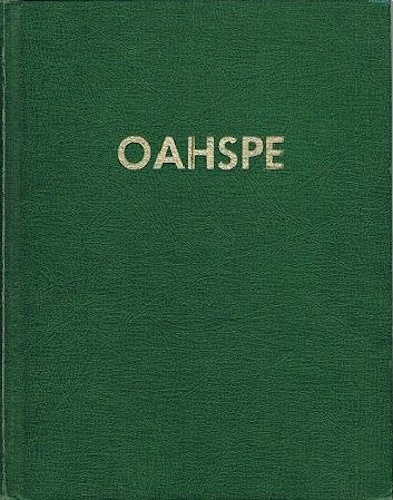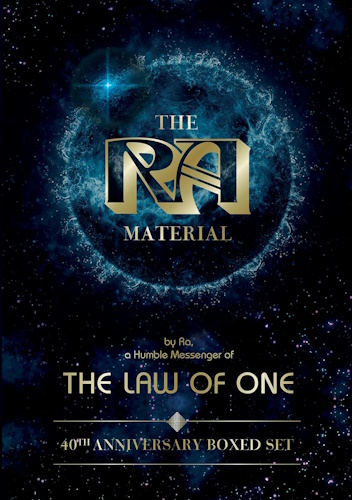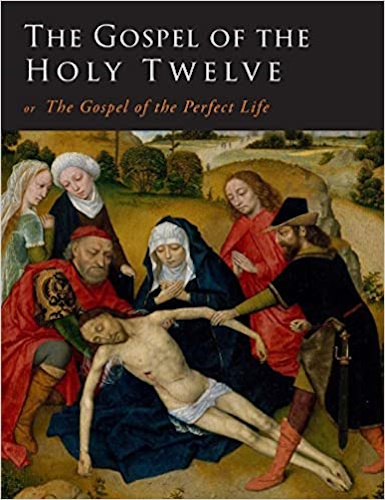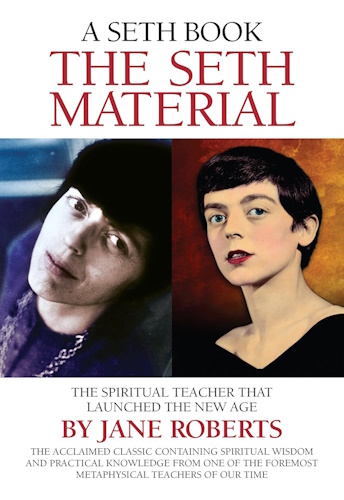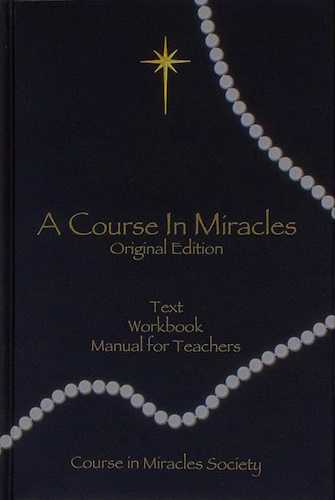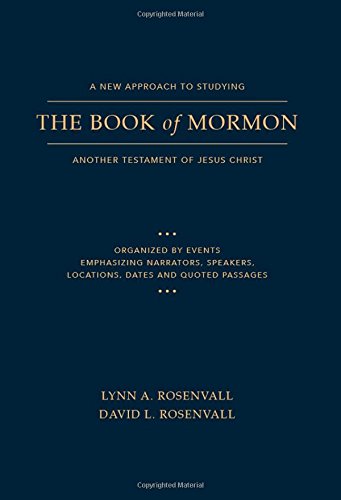
![]()
![]()
First Book of God
Chapter V
1. THE wise shall rule over the foolish, but to raise them up.
2. The rich shall apportion their riches for the benefit of the city.
3. The poor shall reverence the rich and take counsel from them.
4. Behold, I have given many gifts unto my people: the woman to give suck; the very strong man to carry burdens; the wise man to oversee the city; the learned man to explain the ancients; the prophet to hear my voice; the magician to hear the voice of angels; the physician to heal the sick; every several one gave I good gifts.
5. Thou shalt not covet another man's gifts, but be wise in discovering thine own, and using them for the benefit of the city.
6. Neither shalt thou covet another man's riches, nor anything that is his. What more is a rich man than a watch-dog? Behold, it is his matter, whether he fulfilleth my commandments.
7. According to every man's gifts do I require of him, as to what he can do for the people of his city.
8. To the poor man, my exactions
p. 320b
are lighter than a straw on a camel's back.
9. For the ignorant man, and for the very young child, I provided the wise and rich as Gods to raise them up. As they minister unto them, so do I bless them for their labor.
10. What they do corporeally for the resurrection of those beneath them, so do I answer them in spirit in my resurrections in the heavens.
11. Thou shalt not marry but once; neither shalt thou look after any other partner all the days of thy life.
12. The husband shall be the master of the house; but when he is not present, the wife shall be master.
13. Seven castes have I made for my chosen: The first are the prophets; the second, such as have the highest geneology; the third, the rab'bahs and priests; the fourth, the nuns (spe-e-su); the fifth, physicians; the sixth, the rich; and seventh, the very poor.
14. Each and every caste shall remain by itself; all of them are worthy before me, and are equally my children.
15. Thou shalt not kill, for food to eat, anything that breathes the breath of life.
16. Thou shalt love to search for thy Creator in all things on the earth, in the earth, in the waters, and in the air above the earth.
17. Thou shalt love to search for all that is good in thy neighbor; but to excuse all the evil that is in him.
18. Thou shalt keep the sacred days of thy God, and cause all thy people to rejoice in the delightful creations of thy Creator.
19. Thou shalt obey the prophet of thy God; and be obedient to the father (rab'bah) of the city. Next to these, thou shalt honor thy father and thy mother, and pay reverence to thy grandfather and grandmother.
20. In the house (temple) of thy God, remember that all men are alike; for even as death layeth the high and the low alike, so stand my people in the house I have built.
21. Thou shalt respect the opinions of all men; for even thyself may be in error.
22. Thou shalt speak but little of thyself or anything that is thine; for all others have a history also.
23. Thou shalt make thyself compatible unto others in all righteousness.
-
Urantia Book, 44:0.11 - The Celestial Artisans
Never in your long ascendancy will you lose the power to recognize your associates of former existences. Always, as you ascend inward in the scale of life, will you retain the ability to recognize and fraternize with the fellow beings of your previous and lower levels of experience. Each new translation or resurrection will add one more group of spirit beings to your vision range without in the least depriving you of the ability to recognize your friends and fellows of former estates.
-
Princess Bride 1987 Wallace Shawn (Vizzini) and Mandy Patinkin (Inigo Montoya)
Vizzini: HE DIDN'T FALL? INCONCEIVABLE.
Inigo Montoya: You keep using that word. I do not think it means what you think it means. -
Urantia Book, 117:4.14 - The Finite God
And here is mystery: The more closely man approaches God through love, the greater the reality -- actuality -- of that man. The more man withdraws from God, the more nearly he approaches nonreality -- cessation of existence. When man consecrates his will to the doing of the Father's will, when man gives God all that he has, then does God make that man more than he is.
-
Urantia Book, 167:7.4 - The Talk About Angels
"And do you not remember that I said to you once before that, if you had your spiritual eyes anointed, you would then see the heavens opened and behold the angels of God ascending and descending? It is by the ministry of the angels that one world may be kept in touch with other worlds, for have I not repeatedly told you that I have other sheep not of this fold?"
-
Urantia Book, Foreword - 0:12.12 - The Trinities
But we know that there dwells within the human mind a fragment of God, and that there sojourns with the human soul the Spirit of Truth; and we further know that these spirit forces conspire to enable material man to grasp the reality of spiritual values and to comprehend the philosophy of universe meanings. But even more certainly we know that these spirits of the Divine Presence are able to assist man in the spiritual appropriation of all truth contributory to the enhancement of the ever-progressing reality of personal religious experience—God-consciousness.
-
Urantia Book, 1:4.3 - The Mystery Of God
When you are through down here, when your course has been run in temporary form on earth, when your trial trip in the flesh is finished, when the dust that composes the mortal tabernacle "returns to the earth whence it came"; then, it is revealed, the indwelling "Spirit shall return to God who gave it." There sojourns within each moral being of this planet a fragment of God, a part and parcel of divinity. It is not yet yours by right of possession, but it is designedly intended to be one with you if you survive the mortal existence.
-
Urantia Book, 1:4.1 - The Mystery Of God
And the greatest of all the unfathomable mysteries of God is the phenomenon of the divine indwelling of mortal minds. The manner in which the Universal Father sojourns with the creatures of time is the most profound of all universe mysteries; the divine presence in the mind of man is the mystery of mysteries.
-
Urantia Book, 1:4.6 - The Mystery Of God
To every spirit being and to every mortal creature in every sphere and on every world of the universe of universes, the Universal Father reveals all of his gracious and divine self that can be discerned or comprehended by such spirit beings and by such mortal creatures. God is no respecter of persons, either spiritual or material. The divine presence which any child of the universe enjoys at any given moment is limited only by the capacity of such a creature to receive and to discern the spirit actualities of the supermaterial world.
-
Urantia Book, 11:0.1 - The Eternal Isle Of Paradise
Paradise is the eternal center of the universe of universes and the abiding place of the Universal Father, the Eternal Son, the Infinite Spirit, and their divine co-ordinates and associates. This central Isle is the most gigantic organized body of cosmic reality in all the master universe. Paradise is a material sphere as well as a spiritual abode. All of the intelligent creation of the Universal Father is domiciled on material abodes; hence must the absolute controlling center also be material, literal. And again it should be reiterated that spirit things and spiritual beings are real.
-
Urantia Book, 50:6.4 - Planetary Culture
Culture presupposes quality of mind; culture cannot be enhanced unless mind is elevated. Superior intellect will seek a noble culture and find some way to attain such a goal. Inferior minds will spurn the highest culture even when presented to them ready-made.
-
Urantia Book, 54:1.6 - True And False Liberty
True liberty is the associate of genuine self-respect; false liberty is the consort of self-admiration. True liberty is the fruit of self-control; false liberty, the assumption of self-assertion. Self-control leads to altruistic service; self-admiration tends towards the exploitation of others for the selfish aggrandizement of such a mistaken individual as is willing to sacrifice righteous attainment for the sake of possessing unjust power over his fellow beings.
-
Urantia Book, 54:1.9 - True And False Liberty
How dare the self-willed creature encroach upon the rights of his fellows in the name of personal liberty when the Supreme Rulers of the universe stand back in merciful respect for these prerogatives of will and potentials of personality! No being, in the exercise of his supposed personal liberty, has a right to deprive any other being of those privileges of existence conferred by the Creators and duly respected by all their loyal associates, subordinates, and subjects.
-
Urantia Book, 54:1.8 - True And False Liberty
There is no error greater than that species of self-deception which leads intelligent beings to crave the exercise of power over other beings for the purpose of depriving these persons of their natural liberties. The golden rule of human fairness cries out against all such fraud, unfairness, selfishness, and unrighteousness.
